Please fill out the following information, and RRFC Admissions will contact you to discuss our program offerings:
Issue #178
by L. Swift and Jeff McQ
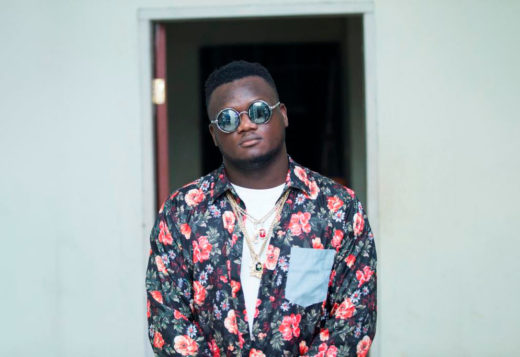 It hasn’t taken Fredrick Nsiah long to start making the most of his training at the Recording Connection. Since enrolling in the program, he has taken his skills as an artist and producer up several notches. After releasing several tracks online, he is now making a name for himself in the Afropop scene under his stage moniker, Exgee, his music video “Ebefawo” having already generated more than 300,000 views!
A Ghanian-American, Fredrick explains the backstory behind the song and the title “Ebefawo,” which translates “It will attract you” in his native language. “When you go back home in Africa and you dress up nice and everybody sees you—‘Damn, you’re dressing good,’” he says. “We were walking around on the street, and then there was a girl around the street. She was like, ‘Damn, you guys, your dressing has attracted me,’ in my language. ‘Ebefawo afami.’ That means it attracts me. So we all responded at the same time, ‘Ebefawo’… ‘It will attract you.’”
Like many modern-day producers and artists, Fredrick’s musical journey figuratively began in his bedroom. “I was recording some stuff at home, doing my thing,” he says, “but I wanted to take it to a professional level. So I was online looking for a place to do it, and then I saw Recording Connection.”
It turned out that one of our most noted mentors lived only 15 minutes away from Fredrick’s house—Don Zientara of Inner Ear Studios, widely regarded as a pioneer of the Washington, D.C. punk scene. Fredrick admits he was uncertain at first how someone so associated with punk and rock would be able to speak to his Afrobeat/rap sensibilities, but those concerns soon faded.
“Music is not about what you know or what [style] the person does. If you understand music, you can do anything,” says Fredrick. “I fell in love as soon as I got there…Don is a very cool person, and a humble person, too…The way he treats you, you feel like it’s a blessing to have him.”
Don’s stature as a music industry veteran was reinforced to Fredrick when the Foo Fighters came in to record a video for a song from their recent HBO documentary Sonic Highways.
He was doing a song with them, I think ‘The Feast and The Famine,’” says Fredrick. “They shot a video and everything right there. It was cool. These guys are like millionaires and I met them, like, ‘Wow.’ They’re all humble, man.”
Since working with Don, Fredrick is putting his newfound skills to good use in writing and producing his tracks, even creating his own samples from scratch. Currently releasing a song at a time, he’s working on creating a mixtape. With Afropop currently gaining steam in Europe (even artists like Drake and Ed Sheeran are releasing tracks in that style across the pond), Fredrick hopes to be a part of making Afropop big in America, as well. Meanwhile, he stays in touch with his mentor, Don, who is always willing to advise him.
“Don is very cool,” he says. “Any time I need help and I call him, he just says, ‘Come in, man, Come in.’ Any time I call him. Apart from music, he’s a very nice person to talk to.”
Of course, it’s not just his producing and mixing skills that are contributing to Fredrick’s current success as an artist. In his own words, “to make it in this business, you have to bring something more to the table.”
“It’s all about commitment,” he says simply. “If you want to do it, you got to commit to it.”
It hasn’t taken Fredrick Nsiah long to start making the most of his training at the Recording Connection. Since enrolling in the program, he has taken his skills as an artist and producer up several notches. After releasing several tracks online, he is now making a name for himself in the Afropop scene under his stage moniker, Exgee, his music video “Ebefawo” having already generated more than 300,000 views!
A Ghanian-American, Fredrick explains the backstory behind the song and the title “Ebefawo,” which translates “It will attract you” in his native language. “When you go back home in Africa and you dress up nice and everybody sees you—‘Damn, you’re dressing good,’” he says. “We were walking around on the street, and then there was a girl around the street. She was like, ‘Damn, you guys, your dressing has attracted me,’ in my language. ‘Ebefawo afami.’ That means it attracts me. So we all responded at the same time, ‘Ebefawo’… ‘It will attract you.’”
Like many modern-day producers and artists, Fredrick’s musical journey figuratively began in his bedroom. “I was recording some stuff at home, doing my thing,” he says, “but I wanted to take it to a professional level. So I was online looking for a place to do it, and then I saw Recording Connection.”
It turned out that one of our most noted mentors lived only 15 minutes away from Fredrick’s house—Don Zientara of Inner Ear Studios, widely regarded as a pioneer of the Washington, D.C. punk scene. Fredrick admits he was uncertain at first how someone so associated with punk and rock would be able to speak to his Afrobeat/rap sensibilities, but those concerns soon faded.
“Music is not about what you know or what [style] the person does. If you understand music, you can do anything,” says Fredrick. “I fell in love as soon as I got there…Don is a very cool person, and a humble person, too…The way he treats you, you feel like it’s a blessing to have him.”
Don’s stature as a music industry veteran was reinforced to Fredrick when the Foo Fighters came in to record a video for a song from their recent HBO documentary Sonic Highways.
He was doing a song with them, I think ‘The Feast and The Famine,’” says Fredrick. “They shot a video and everything right there. It was cool. These guys are like millionaires and I met them, like, ‘Wow.’ They’re all humble, man.”
Since working with Don, Fredrick is putting his newfound skills to good use in writing and producing his tracks, even creating his own samples from scratch. Currently releasing a song at a time, he’s working on creating a mixtape. With Afropop currently gaining steam in Europe (even artists like Drake and Ed Sheeran are releasing tracks in that style across the pond), Fredrick hopes to be a part of making Afropop big in America, as well. Meanwhile, he stays in touch with his mentor, Don, who is always willing to advise him.
“Don is very cool,” he says. “Any time I need help and I call him, he just says, ‘Come in, man, Come in.’ Any time I call him. Apart from music, he’s a very nice person to talk to.”
Of course, it’s not just his producing and mixing skills that are contributing to Fredrick’s current success as an artist. In his own words, “to make it in this business, you have to bring something more to the table.”
“It’s all about commitment,” he says simply. “If you want to do it, you got to commit to it.”
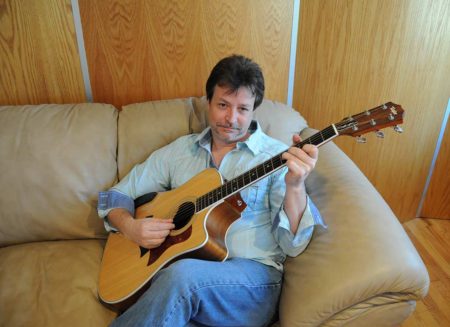 Over his long career as a composer, musician, producer and Grammy-nominated engineer, Recording Connection mentor Hollis Greathouse has worked with a broad cross-section of artists, including Ne-Yo, Ryan Tedder, John Michael Montgomery, the late Etta James and many others. Suffice it to say he knows a few things about working effectively with different types of artists, and he makes a point of passing this knowledge on to the Recording Connection students he mentors at Audible Images in Pittsburgh, PA.
In a recent conversation with RRFC, Hollis revealed some insider insights on how he approaches different clients in the studio. We found these tips so valuable, we decided to share them with you. Enjoy!
Over his long career as a composer, musician, producer and Grammy-nominated engineer, Recording Connection mentor Hollis Greathouse has worked with a broad cross-section of artists, including Ne-Yo, Ryan Tedder, John Michael Montgomery, the late Etta James and many others. Suffice it to say he knows a few things about working effectively with different types of artists, and he makes a point of passing this knowledge on to the Recording Connection students he mentors at Audible Images in Pittsburgh, PA.
In a recent conversation with RRFC, Hollis revealed some insider insights on how he approaches different clients in the studio. We found these tips so valuable, we decided to share them with you. Enjoy!
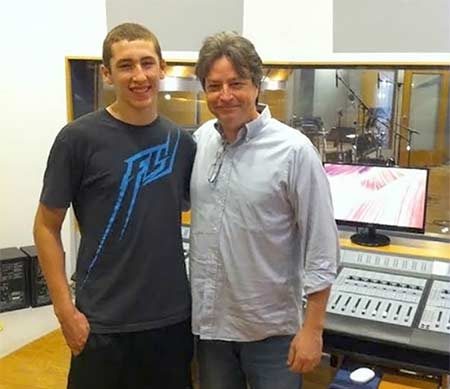
Apprentice Nick Dawson with Hollis Greathouse
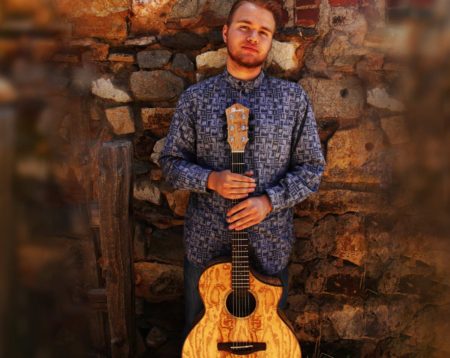 Congratulations to Recording Connection student Garrett Luete (Colorado Springs, CO) on winning the June Producer’s Challenge! His prize? 4 plugins from Plugin Boutique in Brighton, UK. Speaking of the win, Garrett says, “I’m looking forward to using the various plugins to further my library of sound options to choose from when I produce new tracks! The past year working with mentor Jarrod Headley over at Clear Sound Studios has been more than I could have imagined. I’m thankful for the awesome opportunities the Recording Connection has to offer.”
Congratulations to Recording Connection student Garrett Luete (Colorado Springs, CO) on winning the June Producer’s Challenge! His prize? 4 plugins from Plugin Boutique in Brighton, UK. Speaking of the win, Garrett says, “I’m looking forward to using the various plugins to further my library of sound options to choose from when I produce new tracks! The past year working with mentor Jarrod Headley over at Clear Sound Studios has been more than I could have imagined. I’m thankful for the awesome opportunities the Recording Connection has to offer.”
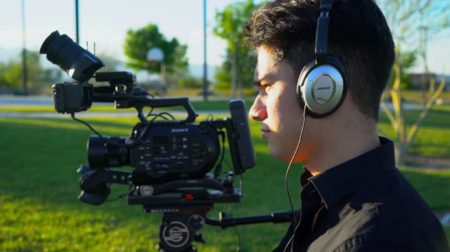 Film Connection student Peter Dubois (Las Vegas, NV) who apprentices with cinematographer Darko Nikolich, recently had the opportunity to connect with a couple of notable directors while on-set of a one-hour documentary for NBC Sports: “The first day of shooting was one of the most exciting days of my life. This being my first ever job on a production, I was eager to work and do whatever I could to assist the production in any way shape or form. I got introduced to the director Ondřej Hudeček. He had directed several short films over the years including “Peacock” which had won the short film special jury prize at Sundance in 2016. I also met Brett Rapkin, who was a writer and producer on this project. I learned later that he actually wrote and directed a feature film called “Spaceman” starring Josh Duhamel. It was a great honor to work with both of these men in addition to several others.”
Film Connection student Peter Dubois (Las Vegas, NV) who apprentices with cinematographer Darko Nikolich, recently had the opportunity to connect with a couple of notable directors while on-set of a one-hour documentary for NBC Sports: “The first day of shooting was one of the most exciting days of my life. This being my first ever job on a production, I was eager to work and do whatever I could to assist the production in any way shape or form. I got introduced to the director Ondřej Hudeček. He had directed several short films over the years including “Peacock” which had won the short film special jury prize at Sundance in 2016. I also met Brett Rapkin, who was a writer and producer on this project. I learned later that he actually wrote and directed a feature film called “Spaceman” starring Josh Duhamel. It was a great honor to work with both of these men in addition to several others.”

RRFC is education upgraded for the 21st century.
Get the latest career advice, insider production tips, and more!
Please fill out the following information, and RRFC Admissions will contact you to discuss our program offerings:
Stay in the Loop: Subscribe for RRFC news & updates!
© 2025 Recording Radio Film Connection & CASA Schools. All Rights Reserved.


